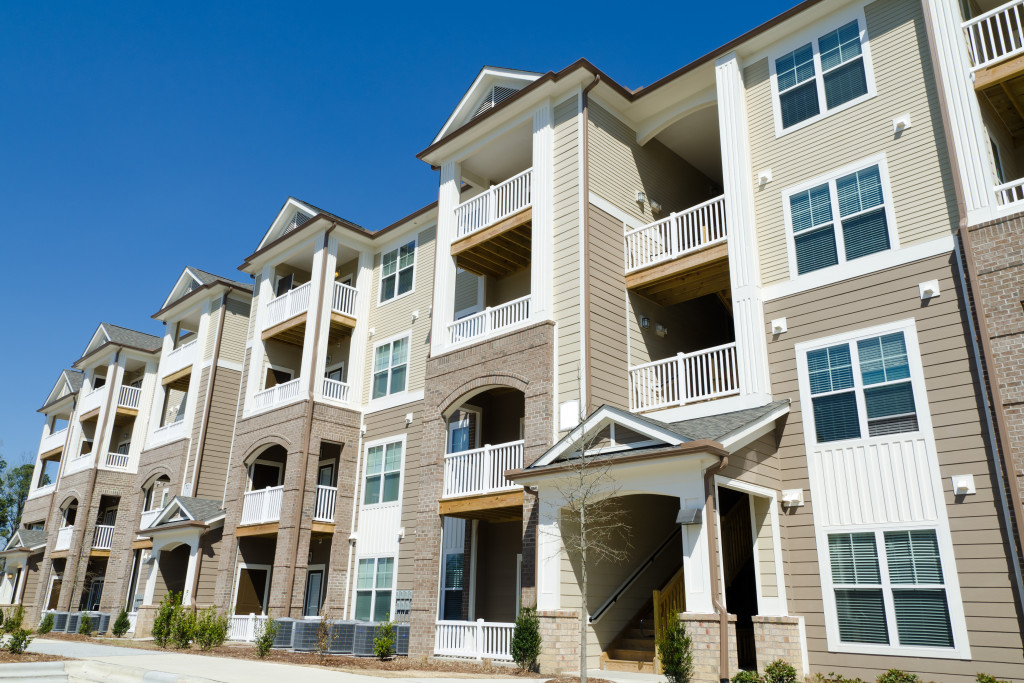- Landlords must comply with various permits and licenses like fire safety, zoning, business, and health.
- Rental homes must meet habitability standards such as working electric wiring, HVAC, plumbing, and ventilation systems.
- Fair housing laws forbid discrimination based on race, color, national origin, disability status, familial status, or religion.
- Tenant privacy must be respected, including notice before entering, a peaceful environment, and personal information protection.
- Landlords must be aware of local rent control regulations, such as caps on rent increases or eviction restrictions.
Knowing the basics of law compliance is essential if you are a landlord or planning to become one in your local community. Rental homes are subject to specific legal requirements that must be followed to avoid costly fines or even lawsuits. As a landlord, you must ensure your property adheres to all regulations to provide a habitable home for your tenants. This blog post will delve into the basics of law compliance for rental homes in your local community.
1. Licensing and Permitting
To operate a rental property, landlords may be required to obtain various licenses and permits from their local government agency. The type and number of permits depend on the location and regulations of your local community. Examples of permits and licenses include the following:
a. Fire safety permits
Tenants must have a safe and secure environment, and fire safety permits are designed to ensure this. Most local governments require landlords to obtain fire safety permits to ensure their rental property meets the necessary fire safety codes for smoke alarms, sprinkler systems, and other requirements.

b. Zoning permits
Many local governments require landlords to obtain zoning permits for the rental property. Zoning permits ensure the property complies with local zoning laws, including building size, parking space requirements, noise control, and other rules.
c. Business permits
In some cases, landlords may need to apply for a business permit from their local government agency to operate a rental property. Not every rental property requires a business permit, but it is important to check local regulations.
d. Health and safety permits
Most local governments require landlords to obtain health and safety permits for their rental property. These permits are designed to ensure that the rental home meets all of the necessary health and safety regulations for occupancy.
2. Habitability Standards
Rental homes must meet specific habitability standards to be deemed livable by tenants. These standards include working electrical wiring, adequate heating and cooling systems, safe plumbing, and proper ventilation. It is the landlord’s responsibility to ensure these standards are met, and any repairs or maintenance should be made regularly to ensure tenant safety and comfort.
But you can also hire property management services to take care of your rental property and meet these standards. These services will handle the day-to-day operations of your rental, such as tenant screening, maintenance, and rent collection. They can also help you comply with the laws and regulations.
3. Fair Housing Laws
A landlord must abide by Fair Housing Laws to provide equal access to housing for all tenants. This means landlords cannot discriminate against tenants based on race, color, national origin, disability status, familial status, or religion. Failure to adhere to these laws can lead to costly legal fees and damage your reputation.

4. Tenant Privacy
Tenants’ privacy is protected by law, and landlords must always respect this. Tenant privacy includes the right to notice before entering the property, the right to a peaceful and quiet living environment, and the right to protect their personal information. As a landlord, you must always obtain the tenant’s consent before entering their rental home and ensure their personal information is always safeguarded.
Privacy also includes maintaining reasonable security measures for tenants’ personal information. This includes using strong passwords and encryption software, regularly monitoring networks and databases, and limiting access to tenant information. Regarding tenant privacy, landlords must always be aware of their legal obligations.
5. Rent Control
Many local communities have enacted rent control regulations to ensure tenants are not unfairly priced out of their homes. Rent control can mean caps on rent increases or restrictions on evictions. As a landlord, it is crucial to understand the rent control policies in place in your local community to avoid legal complications with tenants.
As a landlord, it is essential to comply with all the legal requirements of your local community to provide your tenants with a habitable, safe, and fair housing environment. Ignorance of the law does not exempt you from legal responsibility, and willful disregard for regulations can result in costly fines or lawsuits. Following the basics outlined in this post can help you be a responsible and informed landlord providing high-quality rental homes in your local community.




